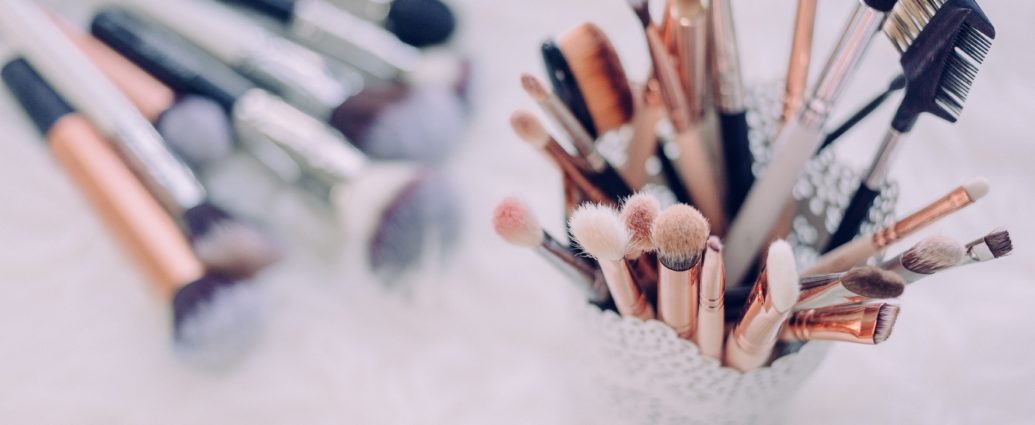“Men are afraid that women will laugh at them. Women are afraid that men will kill them.”
– Margaret Atwood
I have always felt that in order to be beautiful I needed to wear makeup. I believed that by wearing makeup I would be noticed, and to be noticed means you’re beautiful. From an early age we are playing with Barbies, with a typical Barbie doll being white, slim, and blonde. Hardly any consideration for diversity. Eurocentric beauty standards are entrenched within us.
The older I get, the more I think about the power of makeup and the power ‘beautiful’ women hold in society. Being considered beautiful can help you gain access to certain spaces or increase your power in certain settings. By the same token, a perceived lack of beauty or a refusal to conform to certain beauty standards can inhibit such access to new opportunities. I accept that I fit the Eurocentric ideals of having blonde hair, blue eyes, and a slim build. But I have come to acknowledge that seemingly trivial, everyday rituals – such as applying makeup or styling hair – emerge as a result of the internalised male gaze.
In order to change this, we need to acknowledge why we make ourselves up, do you do it for yourself or to fulfil westernised beauty standards?
Laura Mulvey coined the term “male gaze” in her 1975 essay Visual Pleasure and Narrative Cinema, referring to the portrayal in films of women as a spectacle. Films predominantly portrayed women as sexualised objects, side characters or to prop up the plot. Perhaps the most renowned example is the Bond Girl character, who until the most recent films was primarily used as eye candy for the protagonist James Bond.
The media, too, is constantly asserting that we must be beautiful in order to be treated with respect. Advertisements depict beautiful women, pushing unrealistic expectations and fuelling the discourse that to be successful we must look or behave a certain way.
“‘The stereotypical male gazer…takes in the sight of the beautified women and sees only the surface.'”
As posited by the scholar A.J. Cahill, women can enjoy the process of beautifying themselves, but it is impossible to escape the objectifying male gaze. Though a woman may revel in her contouring, it is informed, no matter how subconsciously, by the impact it has when viewed by a man. “The stereotypical male gazer,” she writes, “takes in the sight of the beautified women and sees only the surface.” This happens regardless of the women’s intention, leaving many women feeling vulnerable and mistaking the influence of the male gaze for their own idea of beauty. Our own definition of beauty is warped by that of others and conventionality.
As women, we never catch a break from the male gaze. Whether it’s on the street, the train, the bus, at work, or simply when we walk to the corner shop. We know we’re being looked at. It is something we have become used to and for many women it goes unnoticed. I never acknowledged this until I read Florence Given’s book ‘Women Don’t Owe You Pretty’. We live in a patriarchal society where women are prompted to conform to certain beauty standards in order to be classed as pretty. Given’s book describes how women are told to take preventative measures to “avoid” being raped – never walk alone at night, do so with keys between your fingers – instead of measures being taken to stop people raping in the first place. Rather than teaching boys not to degrade women we teach our women to avoid the degradation. There is reaction after the fact, when there should be prevention.
“I do wear makeup now and again, but I do it for myself.”
Having read and educated myself on the workings of the male gaze and beauty standards, I will never define myself by beauty. As women are so much more than that. Don’t get me wrong, I do wear makeup now and again, but I do it for myself. I could walk out the house with a bin bag on and not care what anyone thinks as it’s my style, my body. Certain standards are so entrenched in our society that it will require a lot of work to resist them on a mass level, but the best place to start is with yourself. You are beautiful. You don’t need the objectifying approval of the guy on the dance floor for self-confidence. It doesn’t matter if you do or don’t look or feel beautiful, it does not alter your value.
It will take effort to dismantle toxic beauty standards, but through individual and small-scale empowerment, we can shatter the ideals that define so much of our lives.
Hollie Beale
Featured image courtesy of freestocks on Unsplash. No changes have been made to this image. Image license here.

